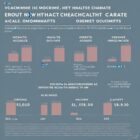Three Tips: Obamacare Enrollment Boosts Healthcare Access

Are you ready to unlock the door to better healthcare?
With Obamacare enrollment, you hold the key to improved access and coverage.
In this article, we’ll share three expert tips to help you make the most of this opportunity.
From understanding eligibility requirements to navigating the healthcare marketplace, we’ll empower you to make informed decisions.
So, grab your metaphorical keychain and let’s open the door to a healthier future together.
Key Takeaways
- Eligibility requirements for Obamacare enrollment include being a citizen or legal resident of the United States, not being currently incarcerated, not having access to affordable health insurance through employer or other government programs, having a household income within a certain range, and being under the age of 65.
- When choosing a healthcare plan, it is important to consider coverage and cost that align with healthcare needs and financial situation, assess healthcare needs including pre-existing conditions and regular medications or treatments, check if preferred healthcare providers are in-network, review overall cost including deductibles, co-pays, and co-insurance, and compare benefits and limitations.
- Utilizing subsidies and financial assistance can help reduce healthcare costs, with eligible individuals being able to receive premium tax credits based on income, low-income individuals and families potentially qualifying for Medicaid, and cost-sharing reductions being available for low-income individuals and families with silver-level health plans.
- Navigating the healthcare marketplace involves researching different insurance plans to compare coverage, costs, and benefits, utilizing online resources such as healthcare.gov or state’s healthcare exchange website, seeking guidance from experts like insurance brokers or certified healthcare navigators, understanding available plans and eligibility for subsidies and financial assistance, and making informed decisions about healthcare coverage.
Eligibility Requirements for Obamacare Enrollment
To qualify for Obamacare enrollment, you must meet specific eligibility requirements. These requirements are designed to ensure that the program is accessible to those who truly need it.
First and foremost, you must be a citizen or a legal resident of the United States. This means that undocumented immigrants aren’t eligible for Obamacare.
Additionally, you mustn’t be currently incarcerated. The program is intended for those who aren’t able to receive healthcare through their employer or other government programs. Therefore, if you already have access to affordable health insurance, you may not be eligible for Obamacare.
Another important requirement is that you must have a household income that falls within a certain range. The specific income thresholds vary depending on the size of your household.
Finally, you must also be under the age of 65 to qualify for Obamacare.
These eligibility requirements ensure that the program is targeted towards those who truly need assistance in accessing healthcare.
Choosing the Right Healthcare Plan
When selecting a healthcare plan, consider the coverage and cost that best align with your specific healthcare needs and financial situation. It’s important to thoroughly evaluate your options before making a decision. Start by assessing your healthcare needs – do you have any pre-existing conditions or require regular medications or treatments? Look for plans that offer coverage for these specific needs.
Additionally, consider the network of doctors and hospitals included in each plan. Ensure that your preferred healthcare providers are in-network to avoid unexpected out-of-pocket expenses.
Next, carefully review the cost of each plan. Look beyond the monthly premium and consider other factors such as deductibles, co-pays, and co-insurance. Take into account your anticipated healthcare expenses for the year and calculate how much you’d be responsible for under each plan. It may also be beneficial to estimate any potential tax credits or subsidies that you may be eligible for to help offset the cost.
Lastly, compare the benefits and limitations of each plan. Look for additional services or benefits that may be important to you, such as prescription drug coverage, mental health services, or maternity care. Evaluate any restrictions or limitations on coverage, such as waiting periods or exclusions for certain procedures.
Utilizing Subsidies and Financial Assistance
You can maximize your healthcare affordability by utilizing subsidies and financial assistance available through the Obamacare enrollment process.
Under the Affordable Care Act, individuals and families with low to moderate incomes may be eligible for premium tax credits, which help reduce the cost of monthly insurance premiums. These credits are based on the individual or family’s income and are available to those who purchase health insurance through the marketplace.
In addition to premium tax credits, individuals and families with very low incomes may qualify for Medicaid, a government program that provides free or low-cost healthcare coverage. The expansion of Medicaid under the Affordable Care Act has made it possible for more individuals and families to gain access to this program.
Furthermore, cost-sharing reductions are available to individuals and families with low incomes who purchase a silver-level health plan through the marketplace. These reductions help lower out-of-pocket costs, such as deductibles, copayments, and coinsurance.
Navigating the Healthcare Marketplace
Maximize your healthcare options by effectively navigating the healthcare marketplace. Understanding how to navigate the healthcare marketplace can help you make informed decisions about your healthcare coverage and find the best options that suit your needs.
Here are three key tips to help you navigate the healthcare marketplace:
- Research different insurance plans: Take the time to explore the various insurance plans available to you. Compare the coverage, costs, and benefits of different plans to find one that aligns with your healthcare needs and budget.
- Utilize online resources: Many online tools and resources are available to help you navigate the healthcare marketplace. Use websites such as healthcare.gov or your state’s healthcare exchange website to learn about available plans, compare costs, and determine your eligibility for subsidies or financial assistance.
- Seek guidance from experts: If you find the healthcare marketplace overwhelming, don’t hesitate to seek guidance from experts. Insurance brokers or certified healthcare navigators can provide personalized assistance, answer your questions, and help you understand your options.
Taking Advantage of Preventive Care Services
To fully benefit from Obamacare enrollment, make sure you actively participate in and take advantage of the preventive care services available to you. Preventive care services are an essential component of healthcare that focus on preventing illnesses or detecting them early on, when they’re easier to treat. These services are designed to keep you healthy and catch any potential health issues before they become serious. By utilizing preventive care services, you can save money in the long run by avoiding costly medical treatments for preventable illnesses.
Under Obamacare, preventive care services are covered by insurance plans without any additional cost to you. This means that you can receive important screenings, vaccinations, and check-ups at no extra charge. Examples of preventive care services include blood pressure screenings, cholesterol tests, mammograms, Pap smears, flu shots, and routine vaccinations for children.
Taking advantage of these services allows you to stay on top of your health and address any potential health concerns before they worsen. Regular check-ups and screenings can help detect diseases such as cancer, diabetes, and heart disease in their early stages when they’re more treatable. By actively participating in preventive care, you can promote your overall well-being and ensure that you’re taking the necessary steps to maintain your health.
Frequently Asked Questions
How Can I Apply for Obamacare if I Am Not a U.S. Citizen or Permanent Resident?
If you are not a U.S. citizen or permanent resident, you can still apply for Obamacare. The process involves submitting documentation and proving your eligibility. It’s important to consult with an immigration expert for guidance.
Will My Pre-Existing Conditions Affect My Eligibility for Obamacare Enrollment?
Your pre-existing conditions will not affect your eligibility for Obamacare enrollment. The Affordable Care Act prohibits insurance companies from denying coverage or charging higher premiums based on pre-existing conditions.
Can I Enroll in a Healthcare Plan Outside of the Annual Open Enrollment Period?
Yes, you can enroll in a healthcare plan outside of the annual open enrollment period. Special enrollment periods exist for qualifying life events like marriage, birth of a child, or loss of other coverage.
Are There Any Penalties for Not Having Health Insurance Under Obamacare?
You may be wondering if there are any penalties for not having health insurance under Obamacare. Yes, there are penalties for not having coverage, but they vary depending on your income and other factors.
Can I Keep My Current Healthcare Provider if I Enroll in an Obamacare Plan?
Yes, you can keep your current healthcare provider if you enroll in an Obamacare plan. However, it is important to check if your provider is included in the network of the specific plan you choose.



